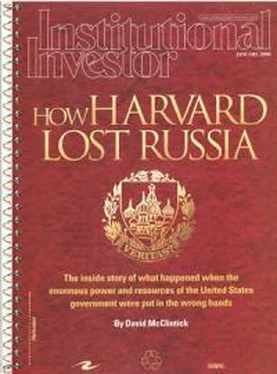This spring Corker rounded-up Senators McCain, Marco Rubio and Lamar Alexander and 23 others in support of Senate Bill 227, the Russian Aggression Prevention Act of 2014. The bill is a veritable cornucopia of imperial dreaming, imposing as it does travel bans on and asset freezes of Russian officials, including Vladimir Putin and Sergei Medvedev, and corporate officers of prominent Russian banks and energy firms. It provides for a stepped-up program of broadcasting propaganda into countries of the former Soviet Union, including Russia, along with the transfer of U.S. intelligence to Ukraine.
The bill further targets Ukraine, Georgia, and Moldava for de facto if not de jure Nato membership with $100 million in lethal military equipment and assistance, which means Nato bases and joint military exercises. It increases funding for NGO fifth-column cover operations in targeted FSU countries and former “captive nations.” The bill also provides for a stop to nuclear arms reductions authorized by the 2010 New START treaty between the U.S. and Russia. And, of course, the bill bestows further gifts on the U.S. fracking and liquefied natural gas industries, the latter being a somewhat fanciful substitution for Russian energy in that decades of FedGov energy policies have insured that the U.S. has no liquid gas export terminals.
Global Research.ca suggests the bill targets “former officials of its Nato allies, including Germany and the Netherlands.” The heads of BASF AG, Wintershall AG, E.ON AG, E.ON Ruhrgas AG, Gasunie of the Netherlands, along with officials connected to the South Stream pipeline project hailing from Italy, France, Bulgaria, Slovenia, Greece, Germany, Bulgaria and Hungary, all Nato members, as well as Austria, Serbia, and Bosnia-Herzegovina.
The most remarkable figure the bill might target for a travel and asset freeze is former German Chancellor Gerhard Schroder for his chairmanship of the board of North Stream AG, which is 51% owned by Gazprom and whose pipe insures Germany’s energy needs.
Last week’s brawl in the Ukrainian Rada (legislature), which foreshadowed our man Yats’s no doubt temporary departure from government, indicates that Senate Bill 2277 may perhaps be somewhat premature if not the high water mark of neocon lunacy.
The worry is that it’s not the latter, and that Ukraine’s future lies in becoming one big, super-sized military base and a super-wide, multilane expressway transporting wealth sucked from Eurasia to Europe.
The Ukrainian people will, of course, be left stumbling along the highway’s soft shoulders as mere pedestrians.
The Globalists’ Russia Game
By Anne Williamson
January 9, 2017
https://www.lewrockwell.com/2017/01/anne-williamson/globalist-game/
Thanks to Barak Obama’s most recent expression of his low character and a foreign policy weirdly akin to fantasy-baseball gone bad, thirty-five U.S.-resident Russian diplomats and their families targeted for rapid deportation feared a frantic search in the holiday crunch for open seats on flights to Moscow.
On Friday, Russia sent an Ilyushin 11-96 to collect everyone and the families’ panic that they might not make their deportation deadlines receded. The embassy’s two retreats, one in New York and another in Maryland, were closed on schedule. Thus was the Obama administration’s maximally-inconvenient timing accommodated.
Everybody was home again on New Year’s Day, and America was Russkiifrei !
That’ll fix it, Team Obama thought, “it” being the lack of traction propaganda-wise that the administration’s unsubstantiated claim that President-elect Trump owed his victory to Russian hacking of DNC and Hillary Campaign Chairman John Podesta emails.
It cannot be said that Vladimir Putin’s response was anything but stylish. Instead of booting American diplomats out of Russia in retaliation, he invited everybody and their kids to a party! Well, to several in fact, which the Kremlin stages annually in celebration of the New Year and the coming Orthodox Christmas.
No need to retaliate now, Putin told his foreign minister, and perhaps it wouldn’t be necessary at all. Why spoil the holidays? For what? A political corpse?
Then the Russian “thug” Putin really rubbed everybody’s nose in it, and sent holiday good wishes to Obama and his family, to Donald Trump, and – can you believe the nerve? – to the American people.
Team Obama was bewildered. And tongue-tied.
Even John McCain, semi-isolated in the Baltics on a special Christmas warmongering tour of Ukraine, the Baltics, and Georgia, piped down once someone got word to him that the Russians were stalling on the return serve.
It only got worse for the White House once the public had a chance to examine the codicil-ridden mess of speculation and innuendo the CIA and the FBI had assembled as evidence for U.S. charges of Russian interference in the American presidential election to President-elect Trump’s advantage. Talk about no there there. Not a single private sector computer security expert supported the intelligence agencies’ allegations.
After Washington found its voice and held congressional hearings on the matter, it was clear the dud report didn’t and won’t crimp the media or the intel agencies. The Washington Post and the New York Times will keep reporting, restating and rewriting key segments of the report until those same speculations are reported as fact. This is how we know the Russians invaded Georgia in 2008 and intimidated Crimea into submitting to reunification with the motherland in 2014 while simultaneously invading Ukraine’s Donbas.
But other than a cheap attempt to delegitimize President-elect Trump, what led the Obama administration to pursue a gambit that delivered them a very public humiliation?
Team Obama’s Russian election hacking allegations had three additional short term goals:
To get President-elect Trump crosswise regarding foreign policy with a still largely neocon-aligned U.S. Congress. First came the abstention from voting on the U.N. Security Council’s resolution condemning Israeli settlements as illegal, which was followed by the Russian holiday hacking operetta with a view to next inserting Iran as a rough wedge between the two. (U.S. insistence on Russia forsaking Iran – or China – will make short work of any progress Trump and Rex Tillerson might manage in the U.S.-Russian relationship.)
To provide Hillary Clinton with a smokescreen to escape the calumny of having spent over a billion and a half dollars of other people’s money on a self-designed electoral bust, which, in turn, is meant to discourage a future Attorney General Jeffrey Sessions from further investigation into the Clinton Foundation’s criminal pay-for-play set-up, the initial attack on F.B.I. director James Comey having been judged unwise and therefore scuttled.
To have the theme of Russian interference at the ready for Angela Merkel’s re-election campaign later this year. (A glance at the German press will show that this one’s already afoot.)
Those are the short-term goals of what will prove to be an ongoing neo-con vilification of Russia. What then is the long term goal of reanimating cold war nonsense 25 years after the Soviet Union’s demise?
There’s too much money and favor riding on the theme Majority Leader McConnell’s statement that “Russia is not your friend” so neatly summed up to back off now.
The military-congressional-industrial-academic-media complex needs an enemy the public can identify with. Guys wearing what appear to be 400 thread count bed sheets driving around vast deserts in Toyotas armed with guns, swords, knives, and suicide belts just don’t cut it.
With a proper enemy, one capable of organizing, deploying and supplying a well-armed army, the government can establish the fear necessary to squeeze the home team for the money needed to keep the U.S.’s war machine economy, seven decades in the making, turning over.
Читать дальше






![Джонатан Димблби - Barbarossa - How Hitler Lost the War [calibre]](/books/385421/dzhonatan-dimblbi-barbarossa-how-hitler-lost-the-w-thumb.webp)





